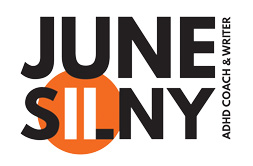 You know the one who they are. Everyone has a (at least one) difficult person in their life.
You know the one who they are. Everyone has a (at least one) difficult person in their life.
I see it as part of the Universal plan. There’s something I am supposed to be learning. I should consider myself lucky. This is my chance to become a better person, to grow, to discover my hidden strengths.
However, when I am in one of those hair-raising, wanting to scream, frustrated moments of trying to talk to a person who is thinking like an alien from another planet- the lessons of the Universe are the farthest thing from my mind.
As hard as I try to avoid reality, the lessons reappear. There is no way out.
Deep in my heart, it’s up to me. I have to accept the challenge.
As much as I try to disprove what I know:
“I cannot change others, I can only change myself,” reality smacks me in the face. The message of the Universe appears…
Difficult people are opportunities to discover my strengths.
I have two choices when interacting with difficult people: 1) to react impulsively and make a bigger mess of the situation or 2) to change the way I react to the person that could change the situation.
I have to change. I have to learn new skills. I didn’t start out thinking that difficult people I have to deal with would benefit me, but they do. I discovered qualities about myself; I did not know I had.
Here are 6 lessons I learned:
1) Bring it on! Start a new attitude.
This situation is my chance to become a better version of myself. I have to change my thoughts, and my attitude. It’s a test I must pass to elevate myself. If I don’t, I will have to repeat this test. It will come back again and again to haunt me until I get it right.
Lesson to myself: Bring it on. I am no longer afraid to deal with this. I have a new perspective.
2) Pause…
As human nature has it, our response is to defend ourselves. However, I know when I resist my urge to engage in an argument, I have a chance to acquire a new perspective. I can calm my wild, angry thoughts, then move away from negative comments. Only then can I regain my dignity. I also discovered my quiet strength, (one that is much smarter than my louder strength).
Lesson to myself: I can be strong. I can be patient. I can be quiet.
3) Play word chess.
When I move away from my negative emotions, I have time to think about my next move. I can strategically plan my conversation. The right move with the right words can result in a positive outcome instead of a fight. If I want someone to hear what I have to say, this is the only way to get my message across.
Lesson to myself: Words are powerful. I can speak words of wisdom.
4) Timing is everything.
There is a right time (and a wrong time) to talk. It’s counter-productive to talk to a person who is not ready to listen. Of course, there are times when immediate action is required. But sometimes, I ask myself, “Does this have to be resolved this moment? Is this the best time to have a talk?” If it’s not the right time, the words I speak will go unheard. Or even worse, they will be received wrongly as criticism and produce a counter-attack. This becomes the pivot point moment that leads to either more conflict or resolution.
Lesson to myself: I have good judgment to decide when the time is right to make the right move.
5) Practice compassion.
Thinking about someone else is usually the last thing I feel like doing. My patience has worn thin. I’m ready to burst but deep in my soul I know that the only way through this is by going into the other person’s soul. I can see their flaws, their hurt, and their pain. When I do, it changes me.
When I act with compassion, I achieve greatness. I can see that their outbursts, inability to communicate, or process situations is blurry (to them). I rise above the situation and open my heart to feel their pain. Usually, people who are difficult to deal are suffering deeply.
Lesson to myself: Difficult people are usually suffering. My compassion elevates me to feel their sadness. Everything looks different now.
6) Take the reigns.
When I take control of myself, I can see through the situation with intelligence instead of emotion. I can identify, acknowledge it, and decide the best way to manage it.
Lesson to myself: I am in control of myself.
Life is a series of lessons. They come at us all day, often in disguise. They appear hidden in the difficult situations we face, and the people we in them. Everything looks brighter and becomes more manageable when you realize that you get to choose how you respond. You might be surprised to discover your hidden strengths.
Your happiness depends on it.
How do you deal with difficult people? Can you benefit from your interactions with them?


Hi June! Thank you for inspiring us… Great job! Am from Africa and am lucky to have come across your blog today. Any link to any inspiring resources will highly appreciated! Regards, Alpha
Hi Alpha,
Wow! It made it all the way to Africa! That’s fantastic. I am so happy you enjoyed it and appreciated it. I will be posting more inpsiring resources and information in the future. Subscribe to my website to stay in touch. All the best, June